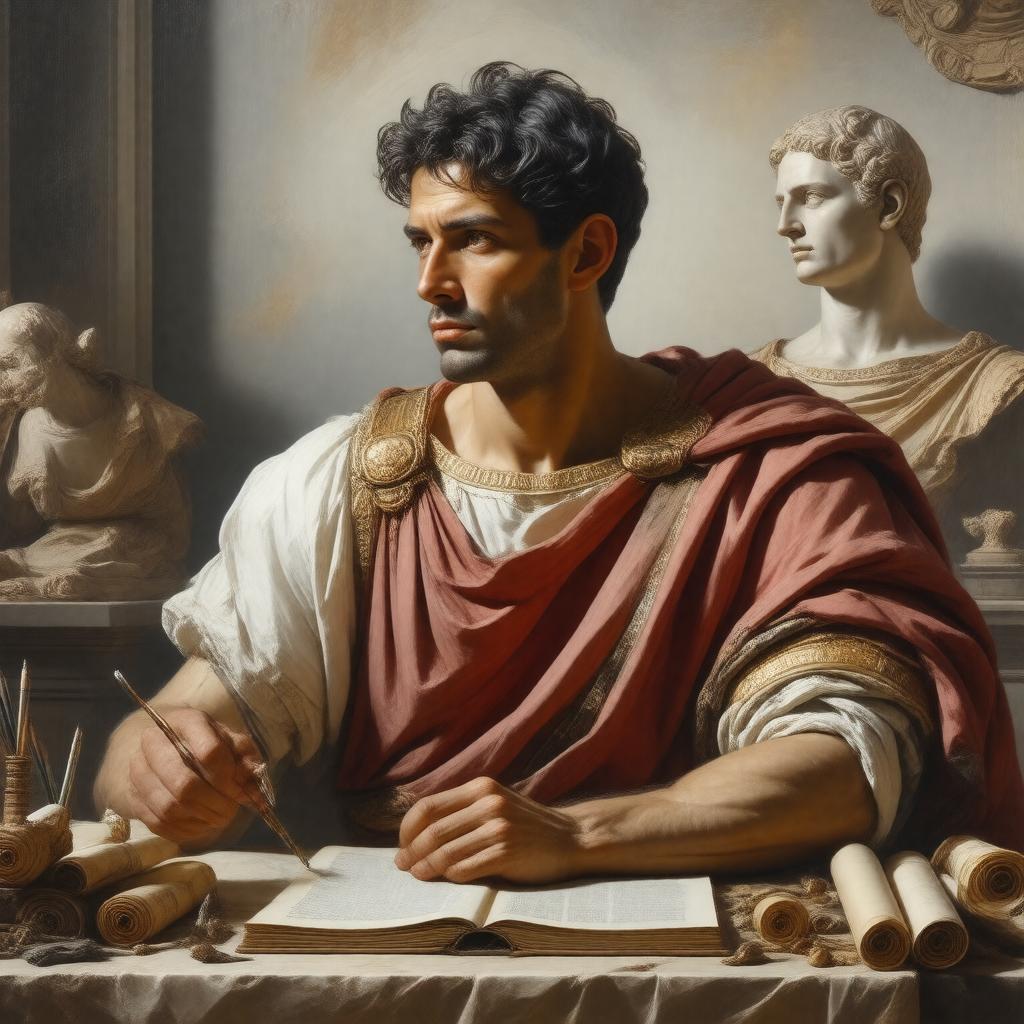Prompt
Generate an image of a Roman poet from the Augustan era, dressed in traditional Roman attire, sitting at a desk with a stylus in hand, surrounded by papyrus scrolls and a bust of Messalla Corvinus in the background, with a contemplative expression, representing Tibullus, the renowned Latin poet, in a classical style reminiscent of ancient Roman art.

